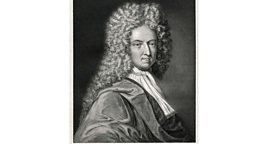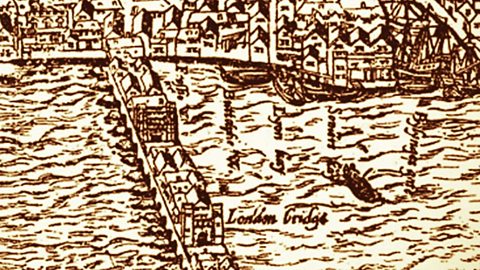The secret life of Daniel Defoe

There are few writers whose lives are as intriguing as their fiction, but Daniel Defoe, author of Moll Flanders, Robinson Crusoe and A Journal of the Plague Year, an account of his survival through the Great Plague that ravaged London, may be the exception. Merchant, political agent, bankrupt, journalist, propagandist and spy, Daniel Defoe was a key contributor to the Act of Union between England and Scotland in the 1700s and in fact worked as a spy for the then Chancellor of the Exchequer, Robert Harley.
Merchant, political agent, bankrupt, journalist, propagandist and spy
Defoe was working in turbulent times; he strongly associated himself with Scotland, and he travelled in Catholic Europe and around Wales and Scotland. He had been raised in the Presbyterian movement, (Scotland did not persecute Presbyterians) making him a dissenter in the eyes of the English government; some see that ‘outsider’ mentality as relevant in his creation of Robinson Crusoe, a deserted man taking solace in his religion. Union, he felt, would help Scotland both financially and in terms of security. Protestant England would also benefit by the association as threats to its security from across the channel were frequent.
Defoe was asked by Robert Harley to continue visiting Glasgow and Edinburgh, but to work as a secret agent of the Crown. Using his writing of ‘The History of the Union of Great Britain’ as a cover, he was instructed to use his time monitoring and noting public and private perceptions around the proposed Union, and to report back directly to King William, of whom he was a great supporter. This was undoubtedly dangerous as the Union was hugely controversial, particularly in Scotland. And contemporary accounts show that Defoe’s own swagger, and the irresistibility of hinting at his important role in coffee houses, very nearly made his role short-lived.
More publicly he ghost-wrote speeches and wrote essays and pamphlets promoting the Union, one of which got him in to trouble as giving in to his satirical vein, he suggested furiously that non-conformists like himself should be killed. That earned him prosecution and the stocks. He talked up the anti-Union mobs ‘roaming the streets’ but added in domestic, specific detail to give veracity; he described a Provost of Glasgow escaping a furious crowd by hiding in a fold up bed.

Writer, Daniel Defoe is at a loss for words
Philip Palmer's (mostly true) story of Daniel Defoe, the great 18th-century writer.
As a personality he was an unusual choice for a spy. Not for him the tight-lipped silence of a Le Carre agent - he was chosen because of his ability to talk to anyone and gather stories, but that kind of approachable bonhomie tends to be accompanied by a certain amount of ego and a writer’s instinct is to make a good story, which cynics could assume may have led to his accounts as an agent being slightly embroidered.
After the Union however Defoe became a more straightforward citizen but capitalised on the contacts he had made during his ‘networking’. He moved to Edinburgh for six years, becoming more openly involved in politics on a local and national level and importing various goods to Scotland.
It’s ironic that a man who wrote so beautifully of survival in solitude would be such an engaged citizen who loved nothing better than being surrounded by people, stories and intrigue.
Defoe on Radio 4
Radio 4's Defoe Season kicks off with an original biographical drama Defoe: Merchant, Convict Spy starring Ben Miles.
Moll Flanders stars Jessica Hynes as lusty and resourceful Moll.
A Journal of the Plague Year Defoe imagines himself as a witness to the Great Plague of London.
Mark Lawson presents a documentary; Defoe: The Facts and the Fictions.
